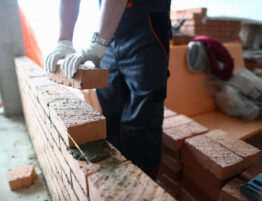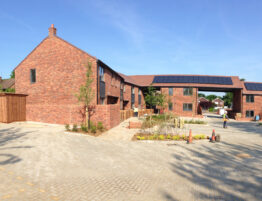
The UK has traditionally been known for its temperate climate – meaning our weather has rarely involved extremes in terms of heat, cold, drought or wind.
With the current heatwave taking our daytime temperatures to 30 degrees and beyond (plus tropical nights of 20+ degrees), experts are warning that that this is likely to be just another version of our ‘new normal’ – the result of climate change which is driving our weather towards more heatwaves, hotter evenings and other associated weather patterns like storms and flash-flooding.
The impact on people’s health is something we all need to be aware of. In England, there are on average 2000 heat-related deaths every year with many more suffering from heat-related problems or illness.
For anyone carrying out physical work outdoors, there can be serious dangers to health and so proper precautions are an absolute must.
There are three main problems to watch out for
Sunburn
As well as causing short-term pain, sunburn can have serious long-term effects including a higher risk of skin cancer. At least 100,000 new cases are now diagnosed in the UK and the disease kills over 2,500 people each year in the UK – that’s seven people every day.
People who have a lot of overall exposure to the sun (even without burning) are at increased risk of non-melanoma skin cancer so this is something construction industry workers should definitely take steps to avoid.
Dehydration
When dehydrated, the body is basically losing more fluids than it is taking in. Warning signs include feeling thirsty, tiredness and dizziness. If left untreated, more serious issues can occur like problems with the skin, digestion and the build-up of toxins.
Heat stress/ heat stroke
When the body overheats, heat stress can cause a wide range of symptoms – lethargy, stumbling, confusion, slurred speech, dizziness, cramps, rashes and collapse.
The most serious heat related condition is heat stroke – a condition where the body can no longer control its temperature. If untreated this can lead to death or permanent disability.
Signs to look out for include:
- An extremely high body temperature (higher than 39 Celsius)
- Red, hot and dry skin with no visible sweating
- Rapid, strong pulse
- Throbbing headache
- Dizziness and/or nausea
- Unconsciousness
How to avoid these problems
Use sun cream – apply a high factor cream or spray applied to any exposed areas of skin.
Keep your head covered – with hard hats compulsory in construction this shouldn’t be a problem but make sure your head is also covered during any downtime.
Keep hydrated – avoid sugary, carbonated or caffeinated drinks but do drink lots of water at regular intervals throughout the day.
Schedule your day appropriately – plan and prepare to carry out the most strenuous jobs during the cooler times of the day (avoiding that midday heat wherever possible).
Seek shade – if you can, find a shady spot during all rest periods.
Look out for each other – if you notice a colleague with any of the signs of heat stress, get them out of the sun, rested and hydrated as soon as you can. If you suspect a case of heat stroke, however, the priority is to call emergency services and they will advise you on what to do next.
12.08.2020
Main image source: Shutterstock
Ed Connor/Shutterstock.com








